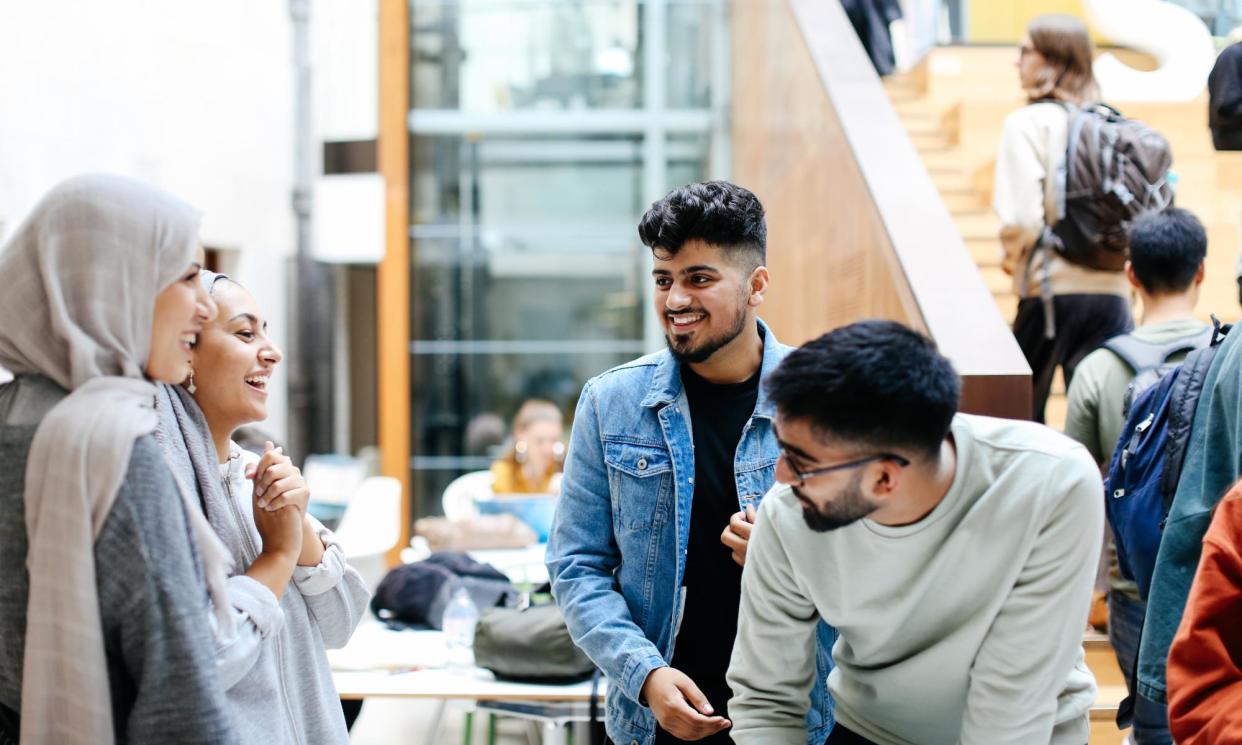From the company you keep to the art you see – how do you maintain a global perspective in an insular minded world?

Today’s world is a complicated place. A burning lump of coal in Saxony can make flooding worse in Bangladesh, while a virus that may have started in a Wuhan live food market can send London, Abuja and Sydney into lockdown.
But despite the global nature of many of the biggest challenges, it can often feel as though our response is to look further inwards – whether demonising refugees for seeking safety, or denying the reality of the climate crisis because changing how we live is inconvenient.
The results of this insularity are especially evident when disinformation plagues our information ecosystem, when polarisation sets us against each other, and when nationalism makes us commit colossal acts of national self-harm. No wonder it sometimes feels as though we are not meeting the moment in which we are living.
“It’s a paradox,” observes Antonio Andreoni, professor of development economics at Soas University of London. “Despite the narrative, the degree of interdependence that globalisation has brought forward is so entrenched and so pervasive that it’s very difficult to understand any phenomena, even at the local level, without understanding the interdependencies.”
What we need, then, is to train ourselves to avoid succumbing to insular perspectives – to zoom out and look beyond our immediate circumstances and instead maintain a global perspective.
One way to do this is to consider the company we keep and the communities we place ourselves in. The people around us help determine our intellectual horizons and can counter our narrow perspectives and insular impulses.
Soas is an example of a place that lives and breathes this approach. Dr Ziya Meral, a lecturer in international studies and diplomacy, explains how a global perspective is threaded throughout the university. “When it comes together, you realise that our approach to different challenges is enriched by others – students and faculty members alike – who are asking different questions with different outcomes, with different methods, with different focus areas,” he says.
He gives the example of one class he teaches on risk and policy analysis, where, with 140 students, he estimates there are 40 different nationalities in the room. “When we engage questions around how our cultures, our societies, and our politics shape what we perceive to be a risk and how we respond to it, we explore how different cultures approach the same questions,” says Meral. “It’s really fun to talk to students about their own childhoods, their own families’ stories and their own cultures.”
However, it isn’t just contrasting experiences that matter: intellectual diversity is important too. “It’s this extraordinary institutional mindset,” says Dr Paul Giladi, an academic philosopher, “Soas was set up in 1916 as an instrument of soft imperial power, and in the space of effectively one hundred years, it’s gone from being a tool of the status quo to arguably the world’s leading institution for radical social critique and progressive transformation.”
And that’s why the Soas community is such a potent catalyst for social justice in a sometimes insular world.
“Soas has a tradition as an incubator of a more ‘dissident’ type of thinking,” says Andreoni. “This is a university that has always refused the idea that the world was becoming flat. The world has not become flat at all. It’s become very bumpy, very hilly and very complicated.”
This is perhaps best exemplified by Soas’s “decolonial” approach – which emphasises viewing events through a global lens that is inclusive of the global south – and which can unlock new ideas, and new solutions.
“With Soas, the decolonial ethos is that you’re not interested in making room for people, you’re interested in creating more seats at the table. You’re redesigning what the table actually is itself,” says Giladi.
As well as diversity of experiences and perspective, there’s the question of how we engage – which is why Soas has a long history of exploring the arts as a cultural force in society. Dr Ilana Webster-Kogen, head of Soas’s school of languages, cultures and linguistics, explains how she sometimes uses music to deepen her students’ understanding: “It’s incredible to see how music brings to life a lot of the issues that, on paper, can seem a little bit dry, but when it’s something that you experience in a multisensory way, it has the capacity to sort of transform [people] very quickly.”
Another key ingredient needed for maintaining a global perspective is the ability to recognise that, as intractable as the world’s problems may seem, we can solve them by remaining curious, empathetic and willing to learn. Curiosity can act as an antidote to polarisation and disinformation.
“The world is less secure than it was 10 years ago, there are huge challenges ahead of us, but at the same time there are a lot of great people out there trying to do the right things and, actually, the world is full of magical truths and beautiful people,” says Meral.
Find out how studying at Soas University of London could expand your mindset and your horizons


